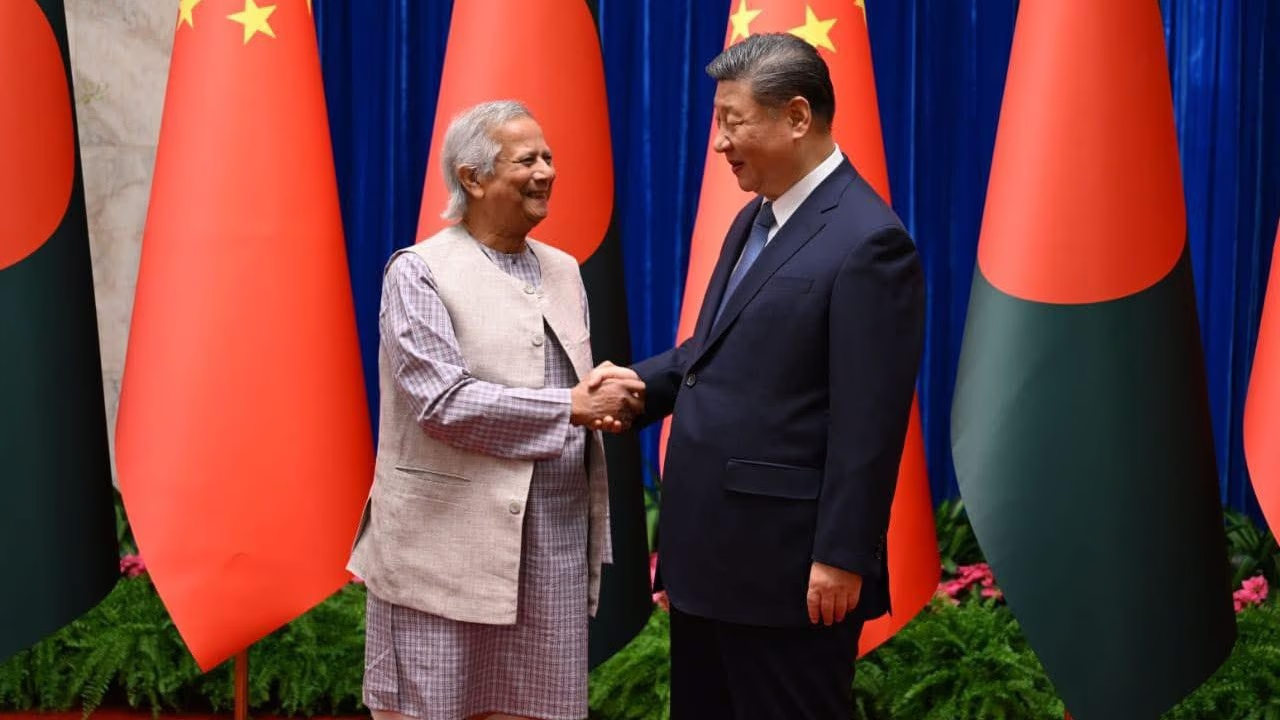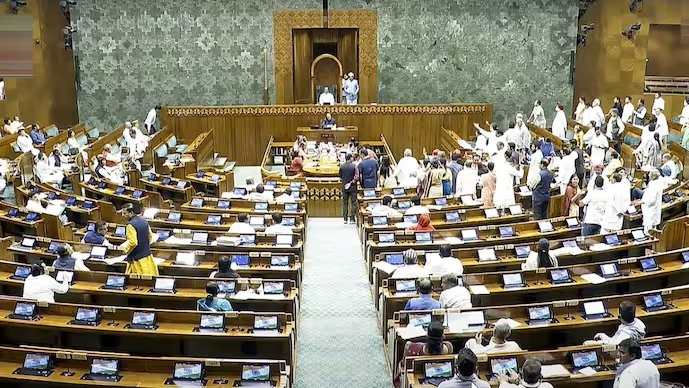It's often said that nature prepares the ground for any great endeavor. Bangladesh's interim government's chief advisor, Mohammad Yunus, recently spoke in China, showcasing his political shortsightedness. This was not only a shame for India but also disappointing for a country whose inception was heavily influenced by India. The audacity of a caretaker president of a nation, so closely tied to India, daring to openly challenge its influence is astonishing. In China, Yunus's defiance could only be equated to that of a hostile nation. He criticized India's limitations and went as far as to declare Bangladesh the sole guardian of the region's seas.
Clearly, Mohammad Yunus requires immediate attention. To prevent Bangladesh's issues from escalating into a wound for India, preparations to address this matter should begin. Yunus has remarked on India's northeastern states, known as the Seven Sisters, during his speech in China, stating their lack of access to the sea due to them being landlocked regions. His comments resonate with the accusations faced by JNU student Sharjeel Imam, who was arrested for sedition. Yunus's statements are akin to waging war against India, which necessitates Bangladesh learning a much-needed lesson.
Why not deliver a strong response to Bangladesh like Pakistan?
It's not so long ago that Pakistan frequently attacked India, through events like the Kargil War, Mumbai serial train blasts, Mumbai attacks, Parliament attack, and hijackings. However, after the Uri attack, the surgical strikes, and the Balakot strike post-Pulwama attack silenced Pakistan. Frequent target killings within Pakistan, attributed to Indian agencies, mean Pakistan hesitates to voice opposition against India internationally. Back in 1971, conditions were less favorable for India, yet it successfully divided Pakistan to form Bangladesh. Despite Pakistan now possessing nuclear arms, India remains unafraid of delivering a message to Pakistan. Naturally, Bangladesh, being militarily weaker than Pakistan, lacks strong international support. Thus, reigning in its overconfidence has become imperative.
President Trump has explicitly stated that Bangladesh's issues are for Prime Minister Modi to handle. Recently, Modi penned a letter to Yunus indicating that India is accountable for Bangladesh and knows how to shoulder its responsibility.
Bangladesh poses a growing threat to India
On March 28 in Beijing, Yunus claimed during a high-level roundtable that Bangladesh is the only protector of the sea in the region due to India's northeastern landlocked terrain. In a social media video, Yunus remarks on the landlocked nature of India's Seven Sisters, emphasizing Bangladesh's role as the region's maritime steward, potentially paving the way for China to expand its economic footprint. This scenario opens vast opportunities, underscoring China's potential as a production hub.
However, the remarks by Yunus pose a strategic risk to Indian borders. Sanjeev Sanyal, member of Prime Minister Modi's Economic Advisory Council, raised concerns tied to Yunus’s comments, arriving alongside tense bilateral relations due to attacks on Hindus in Bangladesh and New Delhi’s decision to offer refuge to ousted Prime Minister Sheikh Hasina.
Manikya Debbarma, Tipra Motha Party founder, warns that groups opposing India are finding shelter to reorganize on Bangladeshi soil. Former Indian Deputy High Commissioner to Bangladesh, Beena Sikri, notes individuals like Yunus, previously aligned with Jamaat-e-Islami during the Pakistan era, have longstanding issues with India. These figures, distinct from ordinary Bangladeshis, harbor views akin to Pakistani sentiments towards India. Consequently, it's essential to promptly address Yunus's provocations.
India's political landscape united in discontent with Bangladesh
India has both the opportunity and rationale to act against Bangladesh. Political factions across the spectrum are criticizing Yunus and Bangladesh. Leaders from both ruling and opposition parties express dismay over Yunus's comments. Assam's Chief Minister, Himanta Biswa Sarma, voiced dissent over Yunus’s comments on northeastern India's Seven Sisters, labeling them offensive and calling for robust condemnation.
Sarma advocates for the development of solid rail and road networks connecting the Northeast to mainland India. He highlights internal elements promoting the dangerous agenda of severing this vital infrastructure link to mainland India. Sarma recommends fortifying the Chicken Neck Corridor with robust infrastructure, underscoring that technical challenges can be overcome through determination and innovation. Yunus's instigative statements must not be trivialized.
While West Bengal's Chief Minister Mamata Banerjee hasn't commented, she previously advocated for sending peace forces to Bangladesh. Tipra Motha Party's Chief Pradyot Manikya, with ancestral ties to pre-1949 Tripura rulers, claims India errored in not retaining the Chittagong port in 1947, arguing that mountain communities desired union with India. Manikya suggests addressing engineering challenges via calculated geopolitical maneuvers.
Congress leader Pawan Khera also decried Yunus’s statement, warning against encroaching Chinese influence in the area. Khera stated that Bangladesh is facilitating Chinese involvement to encircle India, a strategy threatening the security of India’s northeastern region.




